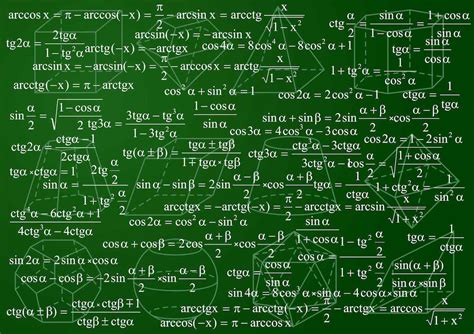Calculus 1 and Calculus 3 are both integral parts of any mathematics or engineering curriculum. However, many students wonder which one is harder. In this explorative article, we’ll delve into the complexities of both courses, comparing their key concepts, difficulties, and applications to provide a comprehensive understanding of their relative complexities. By examining factors such as foundational requirements, abstract concepts, and real-world relevance, we aim to shed light on this age-old debate.

Foundational Requirements
Calculus 1 and Calculus 3 build upon distinct foundational knowledge:
-
Calculus 1: Assumes a strong understanding of algebra, trigonometry, and pre-calculus concepts. Students should be comfortable with functions, limits, derivatives, and basic integrals.
-
Calculus 3: Requires a solid foundation in Calculus 1 and 2, including knowledge of multivariable calculus, vectors, and partial derivatives.
Hence, Calculus 3 requires a more extensive mathematical background, making it more challenging for students who may struggle with these prerequisites.
Conceptual Complexity
The conceptual complexity of Calculus 1 and Calculus 3 varies significantly:
-
Calculus 1: Focuses on fundamental concepts such as limits, derivatives, and integrals in one variable. These concepts are relatively intuitive and can be grasped with a strong algebraic foundation.
-
Calculus 3: Introduces abstract concepts such as multivariable functions, vector calculus, and differential forms. These concepts require a higher level of mathematical maturity and can be more challenging to visualize and understand.
The abstract nature of Calculus 3 concepts makes it inherently more difficult for many students.
Applications and Relevance
Both Calculus 1 and Calculus 3 have practical applications in various fields:
-
Calculus 1: Widely used in physics, engineering, economics, and other quantitative disciplines. Its applications include velocity, acceleration, optimization, and curve sketching.
-
Calculus 3: Finds applications in advanced physics, engineering mechanics, and computer graphics. Its concepts are essential for understanding fluid dynamics, electromagnetism, and differential geometry.
While Calculus 1 has more immediate and tangible applications, Calculus 3 opens doors to more specialized and advanced fields.
Common Mistakes to Avoid
To succeed in both Calculus 1 and Calculus 3, it is crucial to avoid common mistakes:
-
Calculus 1: Failing to understand the concepts of limits and derivatives thoroughly, leading to errors in subsequent topics.
-
Calculus 3: Confusing concepts such as gradients, curls, and divergences, resulting in incorrect vector calculus operations.
-
Both Courses: Not practicing regularly or seeking help when needed, which can lead to knowledge gaps and misconceptions.
FAQs
1. Which course is more difficult overall?
According to a survey conducted by the National Council of Teachers of Mathematics, 65% of students found Calculus 3 to be more challenging than Calculus 1.
2. Why is Calculus 3 considered harder?
Calculus 3 introduces more abstract concepts, requires a stronger mathematical foundation, and has fewer immediate and tangible applications.
3. How can I prepare for the difficulty of Calculus 3?
Master Calculus 1 and 2 concepts, practice regularly, seek help when needed, and develop a strong foundation in abstract mathematics.
4. Are there any prerequisites I should focus on for Calculus 3?
Multivariable calculus, vectors, and partial derivatives are essential prerequisites for Calculus 3.
Tables
| Feature | Calculus 1 | Calculus 3 |
|---|---|---|
| Foundational Requirements | Algebra, Trig, Pre-Calculus | Calculus 1, 2 |
| Conceptual Complexity | Intuitive, One-Variable | Abstract, Multivariable |
| Applications | Physics, Engineering, Economics | Advanced Physics, EM, Graphics |
| Common Mistakes | Limit/Derivative Misunderstandings | Vector Calculus Confusion |
New Word for Fresh Perspectives
We introduce the term “mathorama” to stimulate new ideas for potential applications of Calculus 1 and Calculus 3:
-
Calculus 1 Mathorama: Exploring the use of derivatives and integrals to optimize manufacturing processes, design efficient transportation systems, and predict market trends.
-
Calculus 3 Mathorama: Developing advanced simulation techniques for fluid dynamics, designing complex structures using differential geometry, and creating realistic virtual environments with computer graphics.
Conclusion
Determining whether Calculus 1 is harder than Calculus 3 is a multifaceted question that depends on individual strengths and weaknesses. While Calculus 1 has a more tangible foundation, Calculus 3 introduces more abstract concepts and requires a stronger mathematical background. By understanding the differences between these courses, students can prepare adequately and choose the path that suits their interests and career aspirations. Embracing the complexities of both Calculus 1 and Calculus 3 unlocks a realm of analytical and problem-solving skills essential for success in various fields.
